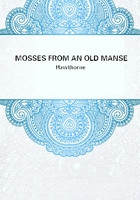
第16章 RAPPACCINI'S DAUGHTER(3)
She looked redundant with life, health, and energy; all of which attributes were bound down and compressed, as it were and girdled tensely, in their luxuriance, by her virgin zone. Yet Giovanni's fancy must have grown morbid while he looked down into the garden; for the impression which the fair stranger made upon him was as if here were another flower, the human sister of those vegetable ones, as beautiful as they, more beautiful than the richest of them, but still to be touched only with a glove, nor to be approached without a mask. As Beatrice came down the garden path, it was observable that she handled and inhaled the odor of several of the plants which her father had most sedulously avoided.
"Here, Beatrice," said the latter, "see how many needful offices require to be done to our chief treasure. Yet, shattered as I am, my life might pay the penalty of approaching it so closely as circumstances demand. Henceforth, I fear, this plant must be consigned to your sole charge.""And gladly will I undertake it," cried again the rich tones of the young lady, as she bent towards the magnificent plant and opened her arms as if to embrace it. "Yes, my sister, my splendour, it shall be Beatrice's task to nurse and serve thee;and thou shalt reward her with thy kisses and perfumed breath, which to her is as the breath of life."Then, with all the tenderness in her manner that was so strikingly expressed in her words, she busied herself with such attentions as the plant seemed to require; and Giovanni, at his lofty window, rubbed his eyes and almost doubted whether it were a girl tending her favorite flower, or one sister performing the duties of affection to another. The scene soon terminated.
Whether Dr. Rappaccini had finished his labors in the garden, or that his watchful eye had caught the stranger's face, he now took his daughter's arm and retired. Night was already closing in;oppressive exhalations seemed to proceed from the plants and steal upward past the open window; and Giovanni, closing the lattice, went to his couch and dreamed of a rich flower and beautiful girl. Flower and maiden were different, and yet the same, and fraught with some strange peril in either shape.
But there is an influence in the light of morning that tends to rectify whatever errors of fancy, or even of judgment, we may have incurred during the sun's decline, or among the shadows of the night, or in the less wholesome glow of moonshine. Giovanni's first movement, on starting from sleep, was to throw open the window and gaze down into the garden which his dreams had made so fertile of mysteries. He was surprised and a little ashamed to find how real and matter-of-fact an affair it proved to be, in the first rays of the sun which gilded the dew-drops that hung upon leaf and blossom, and, while giving a brighter beauty to each rare flower, brought everything within the limits of ordinary experience. The young man rejoiced that, in the heart of the barren city, he had the privilege of overlooking this spot of lovely and luxuriant vegetation. It would serve, he said to himself, as a symbolic language to keep him in communion with Nature. Neither the sickly and thoughtworn Dr. Giacomo Rappaccini, it is true, nor his brilliant daughter, were now visible; so that Giovanni could not determine how much of the singularity which he attributed to both was due to their own qualities and how much to his wonder-working fancy; but he was inclined to take a most rational view of the whole matter.
In the course of the day he paid his respects to Signor Pietro Baglioni, professor of medicine in the university, a physician of eminent repute to whom Giovanni had brought a letter of introduction. The professor was an elderly personage, apparently of genial nature, and habits that might almost be called jovial.
He kept the young man to dinner, and made himself very agreeable by the freedom and liveliness of his conversation, especially when warmed by a flask or two of Tuscan wine. Giovanni, conceiving that men of science, inhabitants of the same city, must needs be on familiar terms with one another, took an opportunity to mention the name of Dr. Rappaccini. But the professor did not respond with so much cordiality as he had anticipated.
"Ill would it become a teacher of the divine art of medicine,"said Professor Pietro Baglioni, in answer to a question of Giovanni, "to withhold due and well-considered praise of a physician so eminently skilled as Rappaccini; but, on the other hand, I should answer it but scantily to my conscience were I to permit a worthy youth like yourself, Signor Giovanni, the son of an ancient friend, to imbibe erroneous ideas respecting a man who might hereafter chance to hold your life and death in his hands.
The truth is, our worshipful Dr. Rappaccini has as much science as any member of the faculty--with perhaps one single exception--in Padua, or all Italy; but there are certain grave objections to his professional character.""And what are they?" asked the young man.